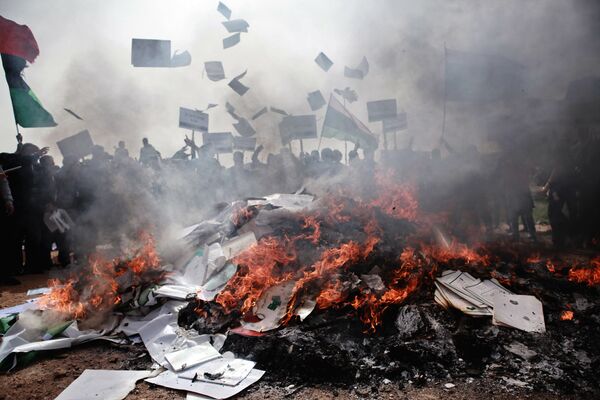Efforts of Russia, one of the world's largest crude producers, to increase the share of its non-energy economy has been nipped in the bud by higher oil prices following the unrest in Libya, a significant oil supplier to the international market, analysts say.
Unrest in Libya, a member of the Organization of Petroleum Exporting Countries (OPEC) and the world's 12th largest crude exporter, propelled oil prices to $130 per barrel, the highest in the last two and a half years.
This might seem a boon for Russia, where energy revenue accounts for 65% of the budget revenue, but analysts say it deprives the economy of incentive to diversify with the bulk of investment coming into the highly profitable energy sector.
"High oil prices push us back to ... teh pre-crisis development model in the medium-term prospect," Alexei Devyatov, an Uralsib bank analyst, said. "The economy starts focusing on the raw materials sector, while other industry growth will slow down."
In 2010, as oil prices eased, Russia's processing industry expanded 11.8% compared with a 3.6% growth of the mining industry, statistics show.
Windfall oil revenues flowing into the country put the central bank at the crossroads whether it should target inflation, like central banks in developed states, or curb the strength of the ruble.
The central bank started changing its policy to target inflation, one of the Kremlin's everlasting woes, last fall, when it widened the floating corridor of its currency basket, consisting of dollars and euros, and cut the volume of its monthly interventions.
But more petrodollars hunting for the ruble make the national currency more expensive which translates into less competitive Russian exports, primarily in oil.
"Rising oil prices change central bank's policy. It is returning to its previous policy," Devyatov said.
But easing the ruble means switching on the printing press and fueling inflation.
"If oil prices are high, it is difficult for the central bank to fight inflation which is considerablly flat now. It is difficult to prevent inflation from growing when producers' costs are rising and capital, which correlates with the oil price, is coming in," Alexandra Evtifyeva from VTB Capital said.
But in the short-term, Russia will benefit from soaring oil prices which will help it replenish state coffers.
"We have a chance to balance our deficit-ridden budget thanks to the oil prices," Investcafe analyst Dmitry Adamidov said.
A strong inflow of liquidity will also help replenish the country's Reserve Fund, set up to cushion the federal budget against a fall in oil prices, which was battered considerably by the international financial crisis.
MOSCOW, March 14 (RIA Novosti, Ksenia Nekhorosheva)




